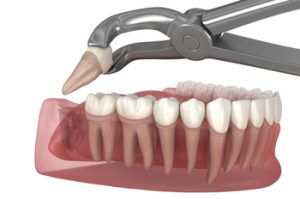There’s a moment when discomfort at the back of your mouth begins to interfere with daily life. Whether it’s soreness, swelling, or trouble chewing, wisdom teeth are often the source. Figuring out what removal involves is one thing, but understanding the potential cost is another question entirely. While some expect it to be a straightforward fee, the reality is that pricing can vary from person to person. That’s why getting a clearer view of the contributing factors can really help with planning ahead. If you’ve been wondering what to expect when it comes to wisdom teeth removal cost, this is a good place to start.
What Are Wisdom Teeth?
Wisdom teeth are the last molars to develop, usually appearing in the far corners of the mouth during early adulthood. While most individuals grow four wisdom teeth, not all emerge in a way that supports healthy alignment. If a tooth becomes impacted, meaning it fails to break through the gum fully, it may press against nearby teeth or cause pressure beneath the surface. This can trigger jaw discomfort, gum inflammation, or changes in the bite.
In such cases, removal becomes necessary to avoid further issues, particularly when other teeth are at risk of being pushed out of place. Dentists may also recommend early removal if signs of infection, tight spacing, or discomfort begin to develop. Leaving an impacted wisdom tooth untreated can sometimes lead to more complex oral health concerns, so timely assessment is key to deciding the most effective approach.
How Much Does Wisdom Teeth Extraction Typically Cost?
 In Australia, a basic wisdom tooth extraction generally begins at around $225 per tooth. When the procedure requires a surgical approach, the price can rise, with some starting at $350 and increasing depending on the complexity involved. Each case is different, so the final cost will reflect factors like tooth position and the level of care required. For accurate pricing based on your situation, it’s important to speak with your dentist directly and review the specific treatment plan.
In Australia, a basic wisdom tooth extraction generally begins at around $225 per tooth. When the procedure requires a surgical approach, the price can rise, with some starting at $350 and increasing depending on the complexity involved. Each case is different, so the final cost will reflect factors like tooth position and the level of care required. For accurate pricing based on your situation, it’s important to speak with your dentist directly and review the specific treatment plan.
What Factors Determine the Expense of Wisdom Teeth Removal?
Understanding what contributes to the cost of wisdom teeth removal can help patients prepare better and make informed decisions. Since this treatment varies in complexity, the expense is influenced by more than just the removal itself.
Complexity of Tooth Position
One of the most significant factors that affect the overall cost is how the wisdom teeth are positioned. If the teeth are fully erupted and easy to access, the procedure is generally simpler and less costly. However, when teeth are impacted or growing at an angle, the removal becomes more complex.
Number of Teeth Being Removed
Whether one tooth or all four are being taken out plays a role in the total expense. A single extraction is naturally more affordable than a full set. However, removing multiple teeth in one appointment might also require longer chair time and additional anaesthesia, which can raise the price. Some patients may also need staged extractions, which can lead to separate consultations and recovery periods. These multiple visits often mean extra fees are added to the final bill.
Type of Anaesthesia Used
The kind of anaesthesia chosen for the procedure significantly contributes to the cost. Local anaesthesia is usually less expensive, as it numbs the specific area without affecting awareness. In contrast, sedation or general anaesthesia is more involved and may require monitoring equipment and extended recovery time. Some patients opt for sedation for comfort or due to anxiety, but this preference does increase the total amount charged. The choice depends on patient needs and the complexity of the procedure.
Location of the Dental Clinic
Where the treatment is performed also impacts the final fee. Clinics in metropolitan areas often charge more due to higher overhead costs. On the other hand, practices in regional settings may offer more affordable pricing. The geographical factor includes both the cost of living in that area and access to advanced technology or staff availability. As a result, the same procedure may vary in price depending on the practice’s postcode.
Clinic’s Experience and Technology
Clinics that use advanced imaging tools and modern techniques may include those resources in their pricing. While this can increase the upfront cost, it often ensures a smoother, more accurate outcome. Dentists who regularly perform wisdom tooth extractions might charge more based on experience. This is often reflected in their ability to handle complex cases with reduced risks. High-quality service and equipment contribute to a higher but often more reliable treatment experience.
Insurance and Payment Support
Whether you have private health insurance can influence how much you need to pay out of pocket. Some policies may cover parts of the procedure, depending on the level of coverage and the reason for extraction. It’s helpful to review your plan in advance and check if the clinic accepts your policy. Knowing what portion of the wisdom teeth removal cost is covered helps avoid unexpected bills and allows for better planning.
How Does the Wisdom Teeth Extraction Process Work?
Many people feel uncertain about what happens during wisdom teeth extractions, especially if it’s their first dental procedure. Gaining a clear understanding of the process can help lessen anxiety and prepare you for what to anticipate at every stage.
Preparing for Your Appointment
Before the procedure begins, your dentist will examine your teeth and likely take X-rays to understand the exact position of your wisdom teeth. This assessment helps determine whether the teeth can be taken out easily or if more complex removal is required. You will be advised on how to prepare and what to avoid before the appointment, particularly regarding food and medication.
 What Happens on the Day
What Happens on the Day
On the day of the procedure, the area will be numbed using a local anaesthetic to make the process more comfortable. Once the area is fully desensitised, your dentist will begin the extraction. If the tooth is visible and straight, it may be removed quickly with gentle pressure. However, if it’s impacted or partially under the gum, the dentist might make a small incision to reach it. Wisdom tooth removal surgery may be needed for those with more complex cases involving bone or awkward angles.
Immediately After the Procedure
Once the wisdom teeth are removed, the dentist will clean the area and, if necessary, place a few stitches to support healing. You will be asked to bite down gently on gauze to help stop any bleeding. Instructions will be provided on how to care for the area, including which activities to avoid and how to manage any swelling or mild jaw pain.
Recovery at Home
For the first few days, it is important to rest and follow your dentist’s advice closely. Eating soft foods, drinking plenty of water, and keeping the area clean will support healing. Discomfort should ease gradually, and any swelling will usually reduce within a few days. Most patients recover without issues and return to normal routines shortly after.
This common dental procedure is generally straightforward when managed with care and professional guidance.
Don’t Let Price Delay Your Relief
 Understanding the price of wisdom teeth removal can feel overwhelming, especially with so many variables at play. From how complex the extraction is to whether you have private health insurance, each factor shapes the final fee. But the cost shouldn’t be a reason to put off a procedure that could ease discomfort or prevent further complications. At our clinic, we’re here to help you feel confident about your treatment decisions. We take time to walk you through the options, explain what’s involved, and support you in choosing what works for your needs. Our team understands that affordability matters, and we’ll always aim to deliver care that aligns with both your comfort and your goals. Call us today on (07) 3185 2387 to book a consultation and find out how we can support your oral health journey.
Understanding the price of wisdom teeth removal can feel overwhelming, especially with so many variables at play. From how complex the extraction is to whether you have private health insurance, each factor shapes the final fee. But the cost shouldn’t be a reason to put off a procedure that could ease discomfort or prevent further complications. At our clinic, we’re here to help you feel confident about your treatment decisions. We take time to walk you through the options, explain what’s involved, and support you in choosing what works for your needs. Our team understands that affordability matters, and we’ll always aim to deliver care that aligns with both your comfort and your goals. Call us today on (07) 3185 2387 to book a consultation and find out how we can support your oral health journey.
Note: Any surgical or invasive procedure carries risks. Before proceeding, you should seek a second opinion from an appropriately qualified health practitioner.
References
https://www.healthdirect.gov.au/surgery/removing-wisdom-teeth
https://www.colgate.com/en-in/oral-health/wisdom-teeth/wisdom-tooth-extraction


 What Happens on the Day
What Happens on the Day




Recent Comments